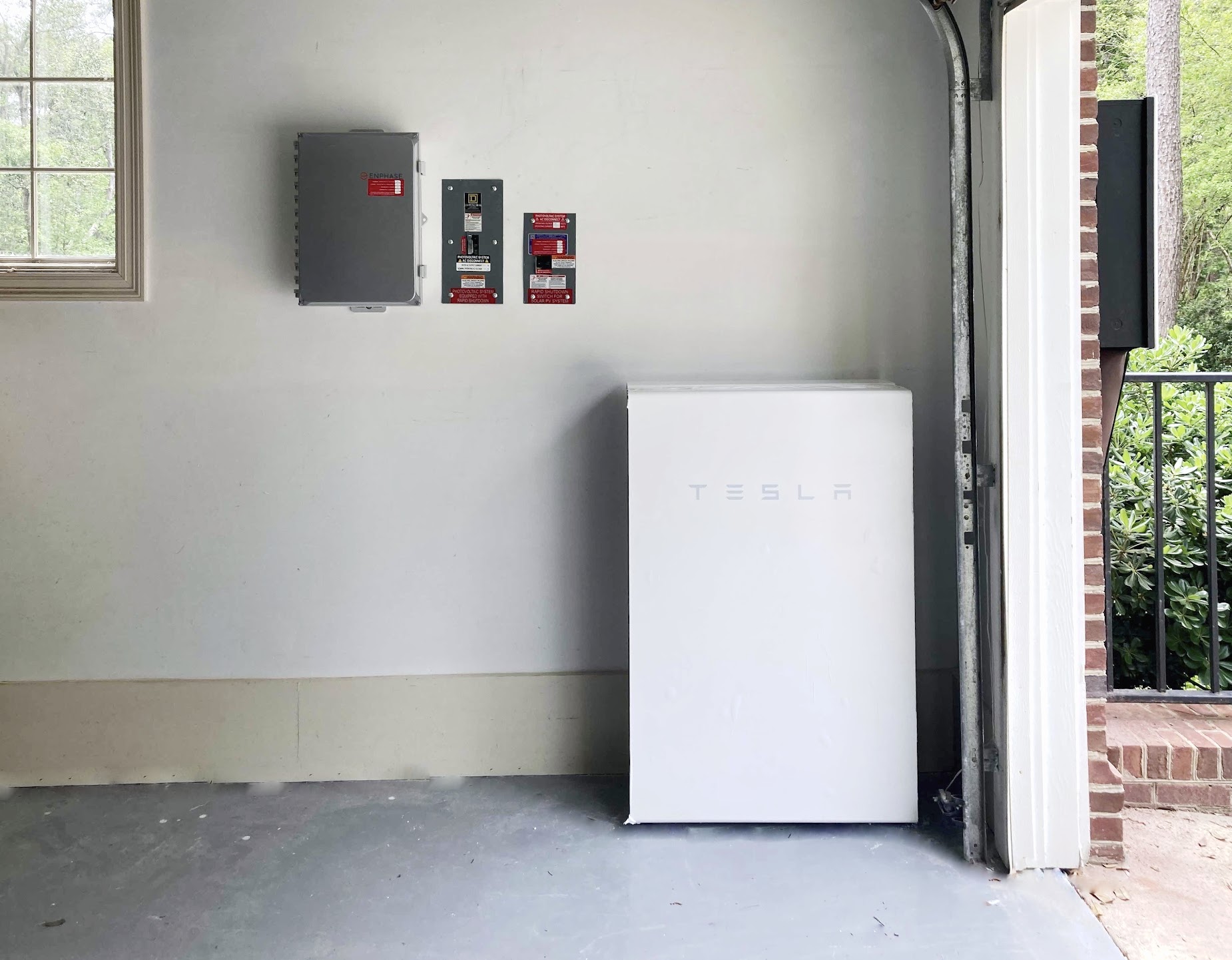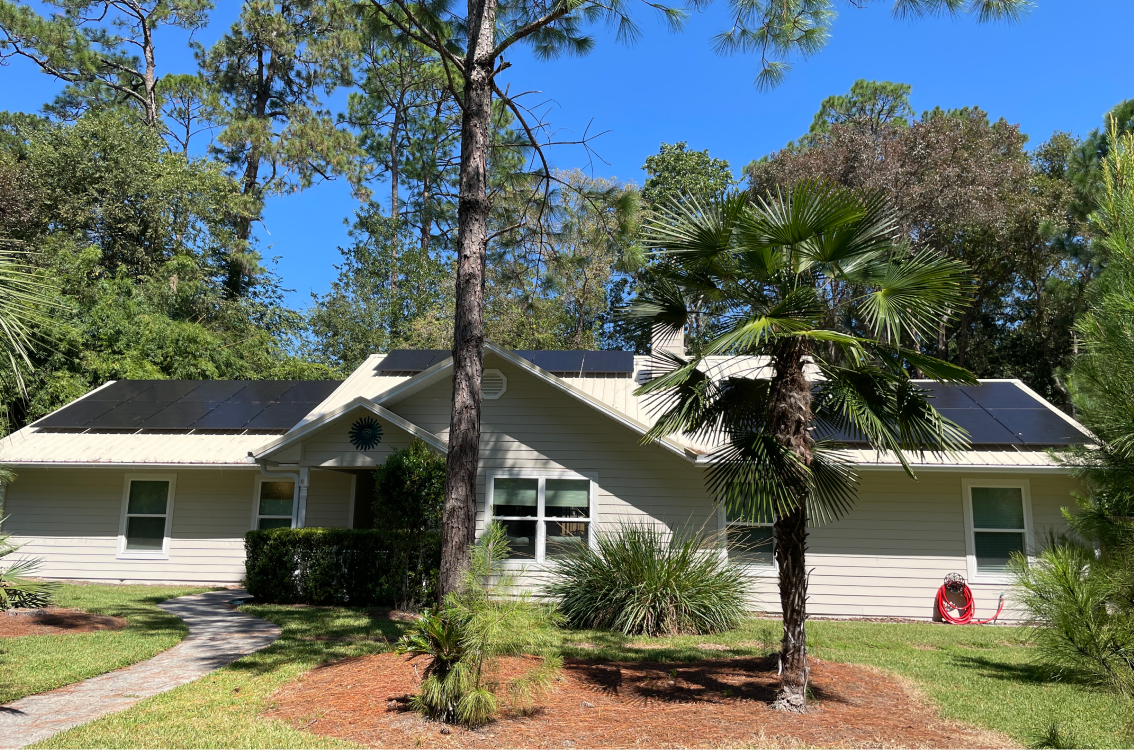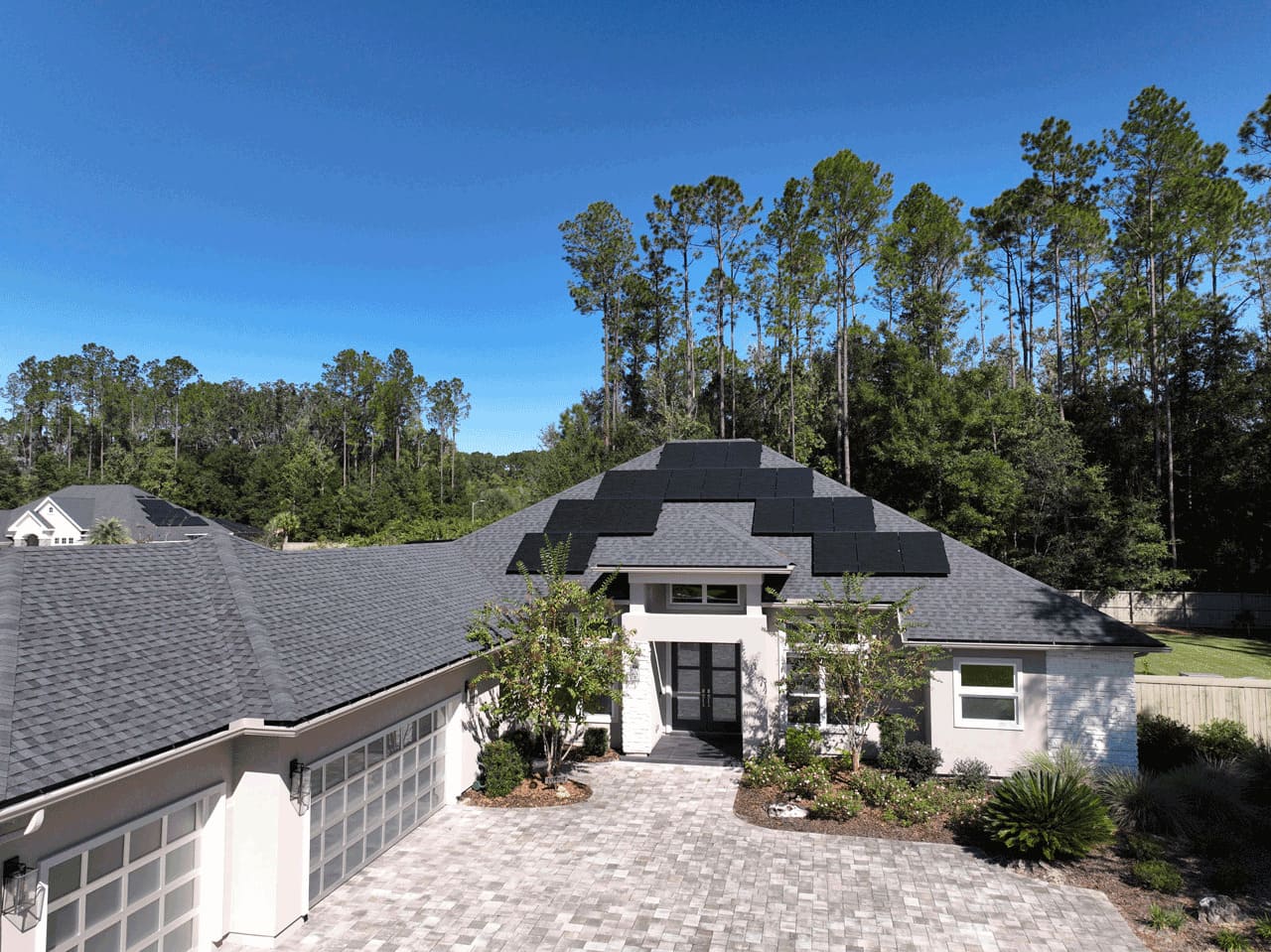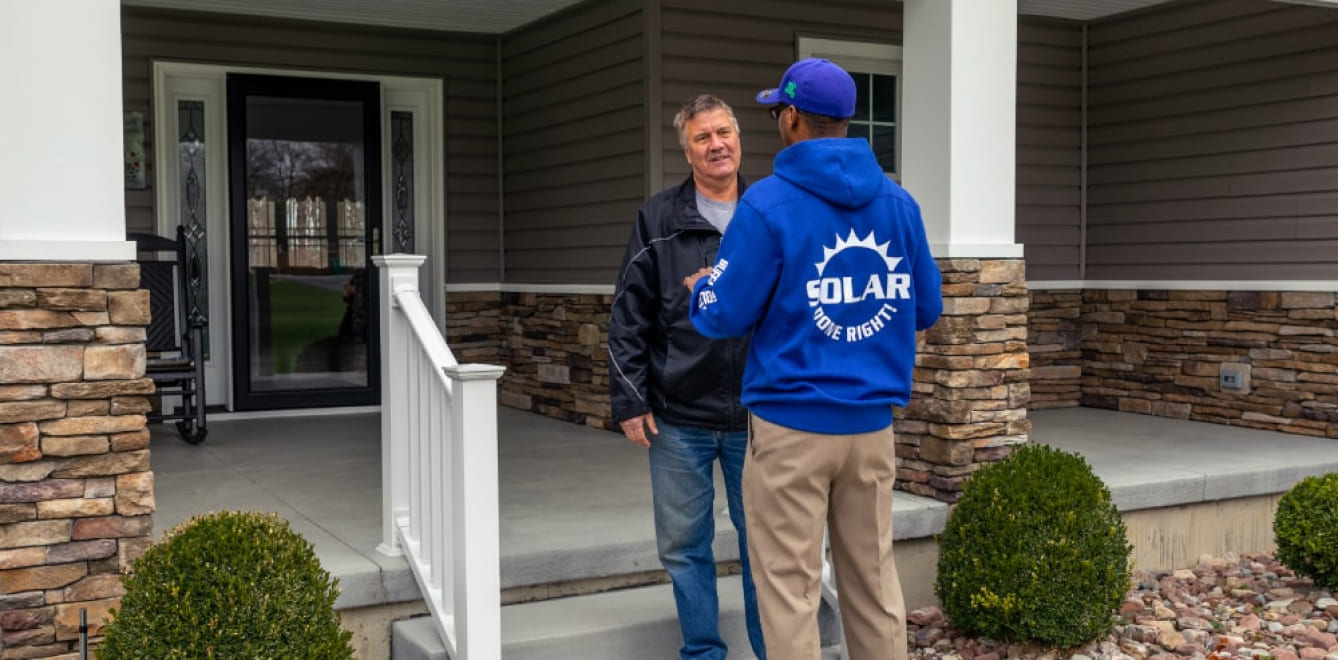Solar battery storage could have been a solution after Hurricane Idalia’s recent visit to the Florida Gulf Coast left more than 18 thousand residents in North Central Florida without power. In times like these, the importance of reliable power cannot be overstated. So, the burning question on everyone’s mind is, “Will solar panels provide electricity during a power outage?”
At PPM Solar, we understand the value of providing bold, modern, and quality solutions to address this concern. We’re here to show how solar panels and battery storage can keep you powered up when the grid goes down. Let’s dive into the details.
- Importance of reliable power during outages
- Basics of solar energy conversion
- Solar panels’ limitations during outages
- Essential role of solar inverters in solar energy systems
- Solar batteries as reservoirs of stored energy
- Continuous power supply, regardless of conditions
- Choosing the suitable inverter based on system requirements
- ROI of solar battery systems
How do Solar Panels Generate Electricity?
To understand how solar panels function during a power outage, it is vital to delve into the fundamentals of solar energy conversion. Solar panels play a pivotal role in harvesting the sun’s energy and transforming it into electricity through photovoltaics. It is worth noting that solar inverters hold immense significance in this process, as they are responsible for converting the direct current (DC) produced by solar panels into alternating current (AC), the form of electricity that fuels your household. You can find valuable residential solar installation information here to explore solar and battery installation designed for your home.
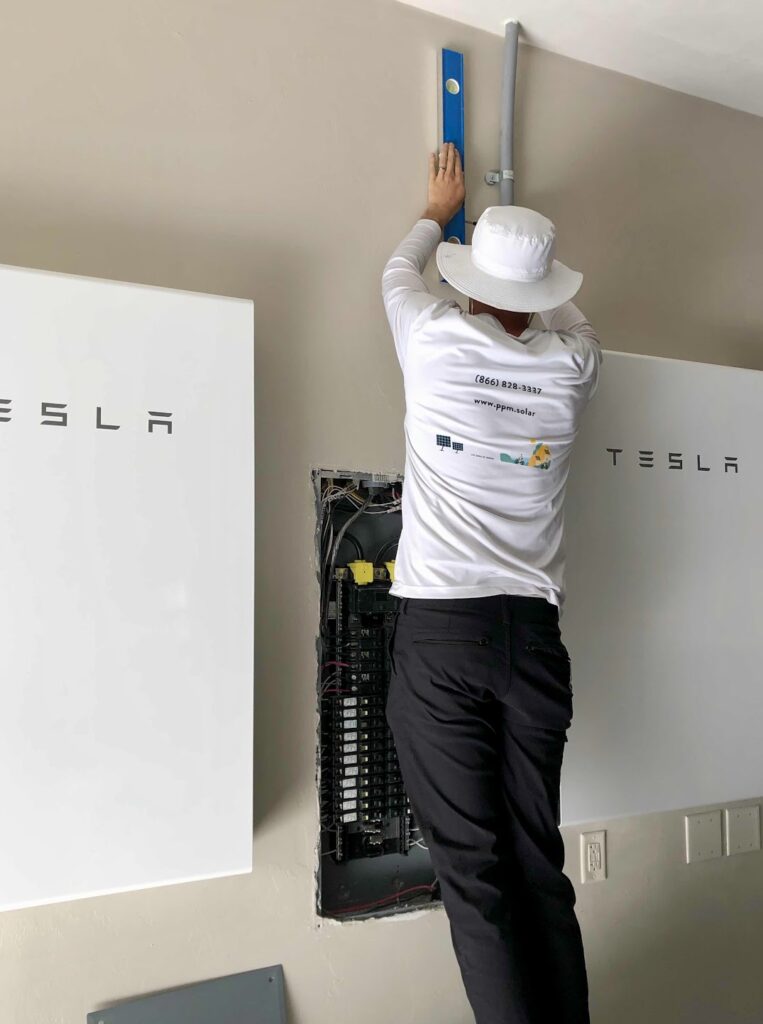
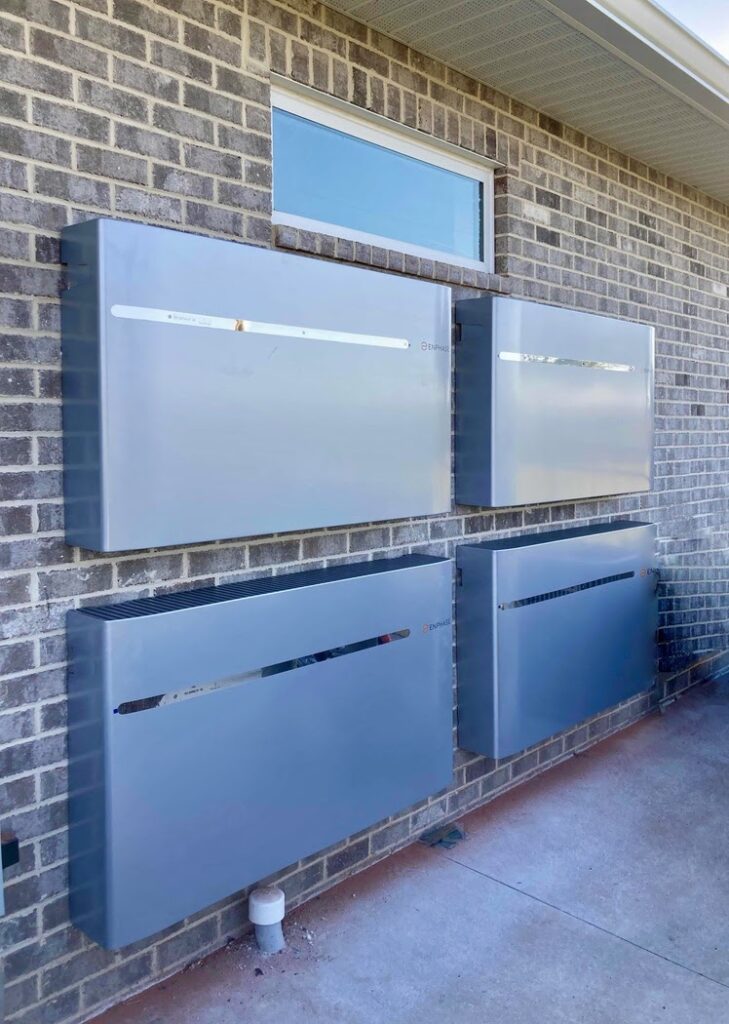
Can You Use Solar Energy During a Power Outage?
It is necessary to realize that solar panels, on their own, do not operate as conventional power sources during an outage. This divergence arises due to predetermined safety measures integrated into solar inverters.
The bottom line is that solar panel systems without a battery do not operate during a utility outage when connected to the grid. But the good news is that the entire system will also work autonomously by adding a solar battery backup system.
Why Do You Need a Solar Inverter?
Solar inverters are the energy gatekeepers within a solar energy system, performing a vital function that often goes unnoticed. They act as the bridge between your solar panels and the electrical appliances in your home, converting the direct current (DC) electricity produced by the solar panels into the alternating current (AC) used by your household. This conversion is fundamental because most appliances and electronics rely on AC power.
One of the lesser-known yet essential features of solar inverters is their ability to disconnect from the grid during power outages. It might seem counterintuitive, but it’s a safety measure designed to protect utility workers. When the grid is down, there’s a risk that your solar panels could continue to generate electricity and feed it back into the grid, creating potentially dangerous conditions. Solar inverters prevent this scenario by shutting off during outages, ensuring that no live circuits are endangering those working to restore power.
The significance of this safety feature cannot be overstated. It not only safeguards the lives of utility workers but also plays a role in the overall reliability and resilience of the electrical grid. Solar inverters prioritize safety while maintaining efficiency – integrating with solar panels for cost-effectiveness and providing a platform for monitoring. Ensuring your solar energy system operates smoothly and responsibly within the broader electrical grid ecosystem.
How Does a Solar Battery Keep You Powered During Outages?
Solar batteries are pivotal in ensuring uninterrupted power supply during outages, making them indispensable components of your solar energy system. These sophisticated battery backup systems trap and guard your unused solar energy, offering reliability when the grid falters.
Think of it this way: surplus electricity gets routed into these solar batteries when your solar panels generate more energy than your home consumes. Instead of letting this excess energy go to waste, it gets stored in batteries for future use. This stored energy becomes a valuable reserve when the grid experiences interruptions, ensuring your household remains powered even when the utility grid fails.
In essence, solar batteries act as reservoirs of solar-generated power, enabling you to tap into their stored energy when you need it the most, making them essential for a seamless and uninterrupted power supply during power outages.
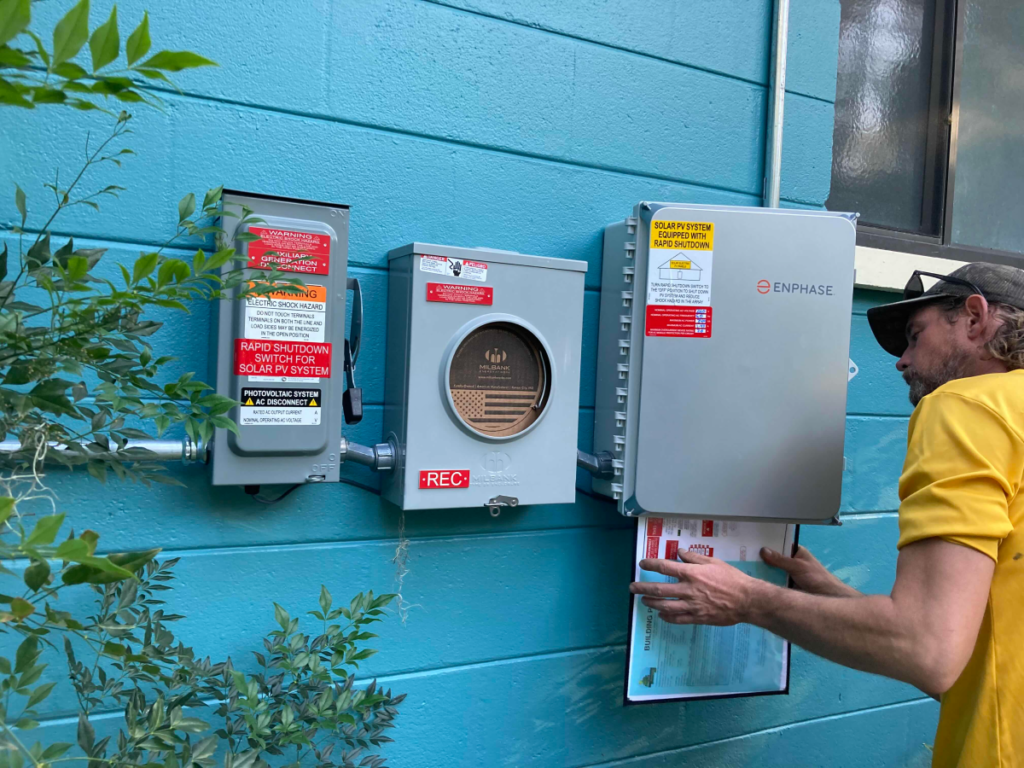
Benefits of Solar Battery Backup Systems
One of the notable benefits of solar battery backup systems is their ability to provide a continuous power supply, regardless of external circumstances. Excess energy generated by your solar panels gets stored in these batteries during regular operation. These batteries seamlessly kick into action when the grid faces disruptions. They ensure that your pre-defined, essential appliances and devices continue functioning without interruption, offering security and invaluable convenience.
Solar battery backup systems do not limit you to being sustained solely during grid outages. They also function as energy reservoirs for nighttime or cloudy days when solar panels produce little or no energy. This added layer of energy storage assures that you can utilize the benefits of solar power around the clock, even when the sun isn’t shining at its brightest. This extended usability is both environmentally friendly and financially advantageous, as it can also reduce your reliance on grid electricity during peak hours. Ultimately lowering your energy bills even more.
In a world marked by increasing climate uncertainties, having a solar battery backup system in place offers peace of mind that extends far beyond the financial realm. Knowing that you have a reliable and autonomous power source during severe weather events, like Hurricane Idalia, provides a level of security that is difficult to put a price on.
Tesla Powerwall or Enphase?
At PPM Solar, we are committed to providing our customers with the highest quality solar storage solutions available. We proudly offer options from two industry-leading manufacturers: Tesla Powerwall and Enphase. These products have consistently demonstrated exceptional performance and reliability, aligning perfectly with our mission to deliver the best solar technology.
As an authorized Tesla installer, PPM Solar brings a wealth of experience and expertise regarding both Tesla Powerwall and Enphase products. Our team has spent many years working with these exceptional solutions, gaining a deep understanding of their capabilities and intricacies. When you consult PPM Solar, you can trust that our experts will carefully assess your specific solar panel system requirements and recommend the inverter that best suits your needs.
Discover more about our solar battery storage solutions and how they can benefit your home.
Solar Storage Capacity, Maintenance, and ROI
The size of the solar array and the energy needed to operate essential household appliances and devices autonomously will determine the entire battery capacity requirements needed to be self-sustaining. This balance ensures that your solar energy system can reliably meet your energy needs while minimizing reliance on the grid during peak hours, at night, or during grid outages.
The good news is that Tesla and Enphase batteries, renowned for their exceptional quality, are virtually maintenance-free. You can enjoy the benefits of energy storage without the hassle of routine upkeep, further enhancing the convenience and cost-effectiveness of your solar energy investment.
Now, let’s talk about the bottom line—return on investment (ROI). You gain control over your electrical costs by optimizing your solar battery capacity and benefiting from maintenance-free solutions. This control translates into tangible financial savings over time, making your solar storage system a sustainable choice and a high-return investment in your energy future.
Conclusion
As of the day of this writing, meteorologists expect Hurricane Lee to stay north of the Caribbean, but it’s still uncertain when it might turn away from the United States and Florida. So remember, while solar panels alone won’t keep the lights on during a power outage – integrating solar batteries can provide a reliable and efficient solution. At PPM Solar, we aim to help you navigate the world of solar energy and storage, ensuring you have the power you need when you need it. Don’t let the next electrical grid outage catch you in the dark—consider solar panels and battery storage for a brighter, more autonomous, and resilient future.
FAQ
What happens to my solar system if there is a power outage in my area?
During an unfortunate electric power outage, most solar systems do not have a built-in or separate battery to power your home. Your solar system will only supply power during an outage if it has a solar backup battery.
Should I turn off solar during the power outage?
Yes, it’s recommended to turn off solar during a power outage for safety reasons. Usually, your inverter automatically performs this function without your interaction based on the configuration, with or without batteries.
How long will a solar battery last during a power outage?
On average, a solar battery bank stores approximately 10 to 12 kWh of electricity. The duration of power provided by a solar battery during an outage depends on its capacity and usage within the home. Since battery banks are stackable, forward-thinking planning of the number of battery banks before a disaster can ensure your system capacity is well-balanced.
Why can’t I use my solar during the power outage?
Solar alone (without batteries) can’t be used during a power outage due to safety measures and grid synchronization. However, having a solar battery backup system does provide energy autonomy.
How long will a Tesla Powerwall last in a power outage?
Tesla Powerwalls are stackable banks, so it is important to calculate the number of banks needed on your system. The Powerwall’s duration during an outage depends on the stack’s capacity and your energy needs during the event. But, the Tesla Powerwall is highly sophisticated, offering user-adjustable settings and monitoring. A keen eye keeps everything running smoothly.
What happens to grid-tied solar when the power goes out?
Grid-tied solar systems are designed to stop working during power outages to prevent backfeeding electrical hazards. Your solar inverter typically senses when the power is restored and reconnects.
